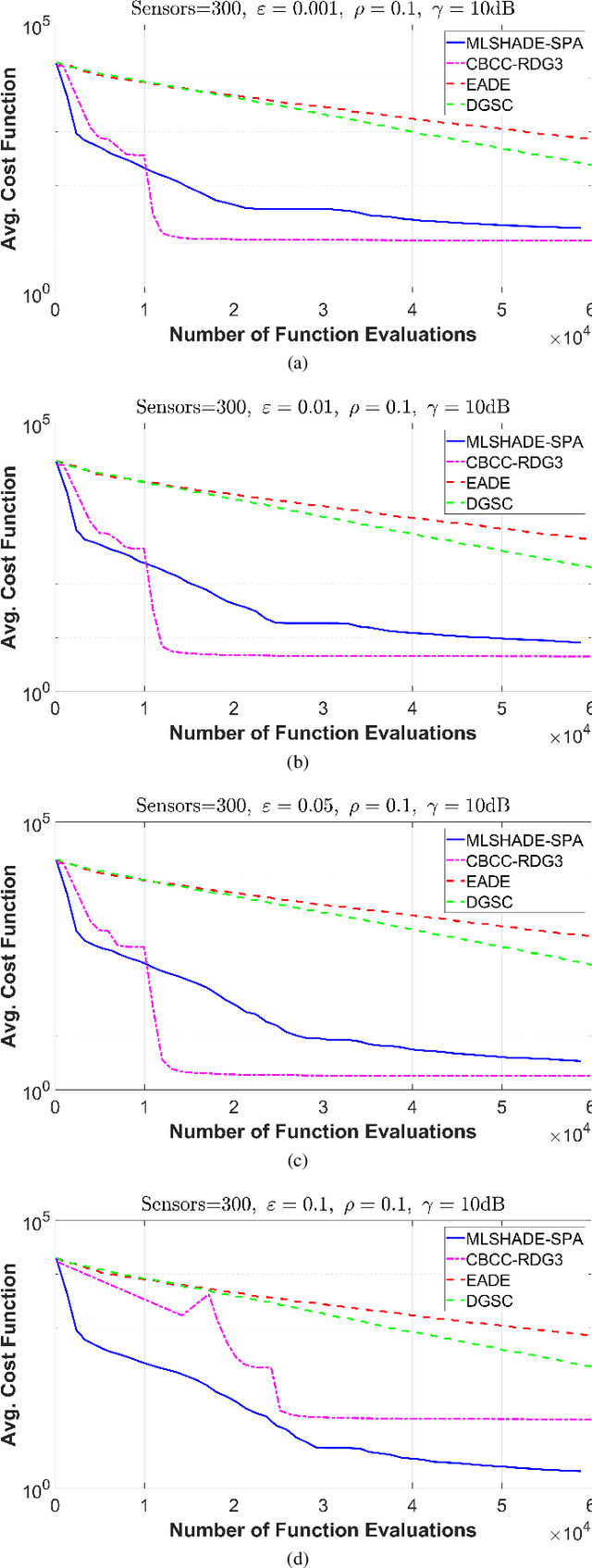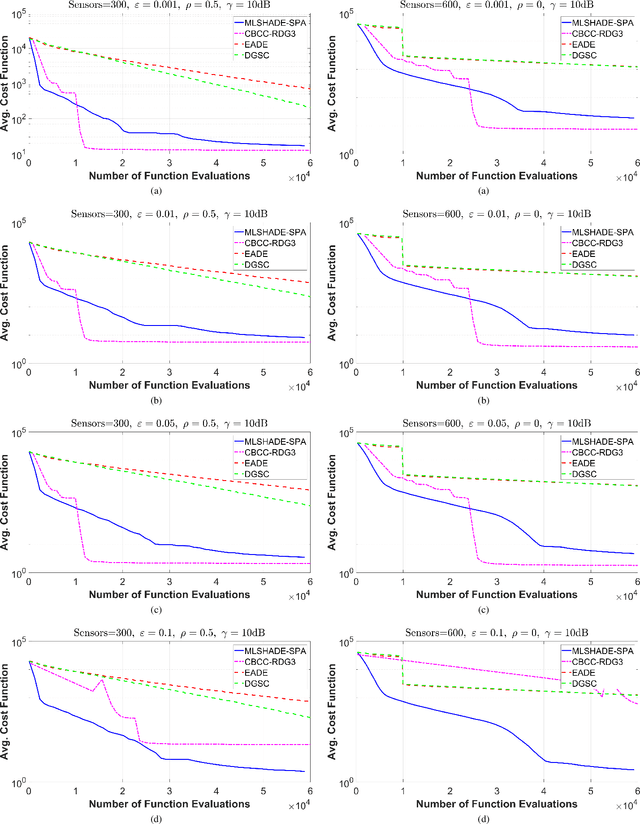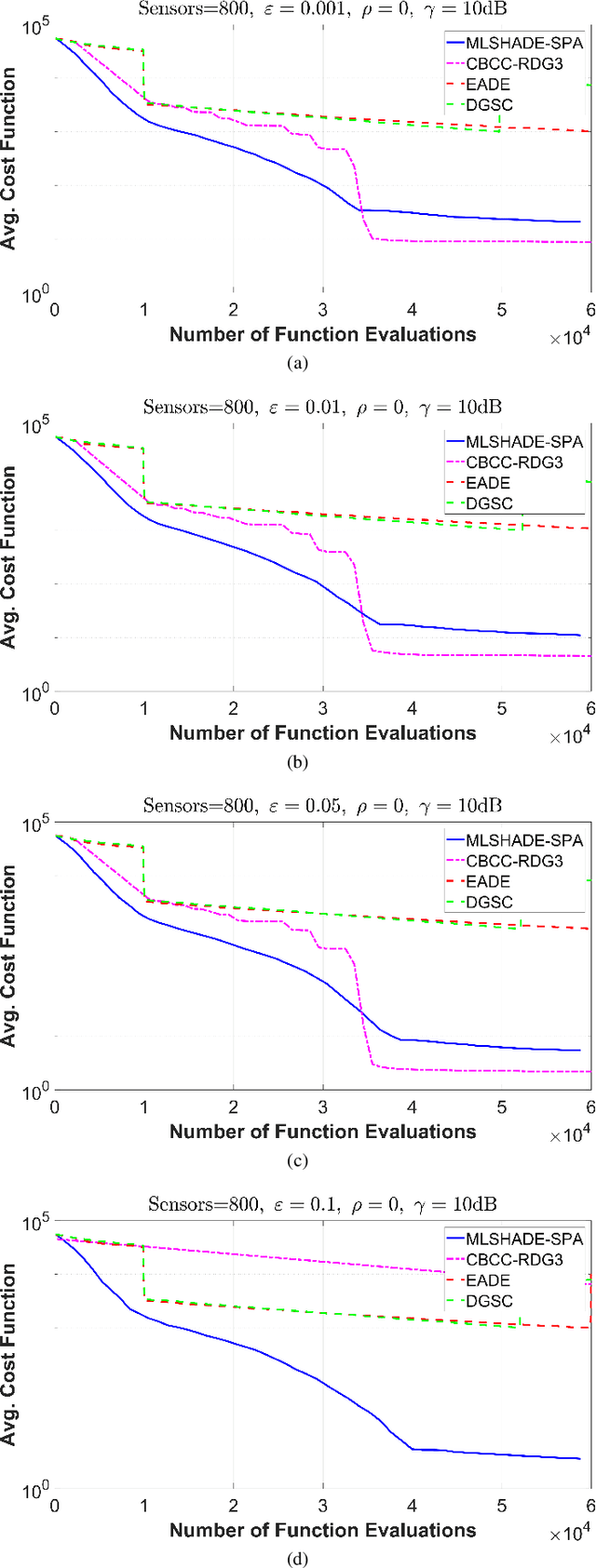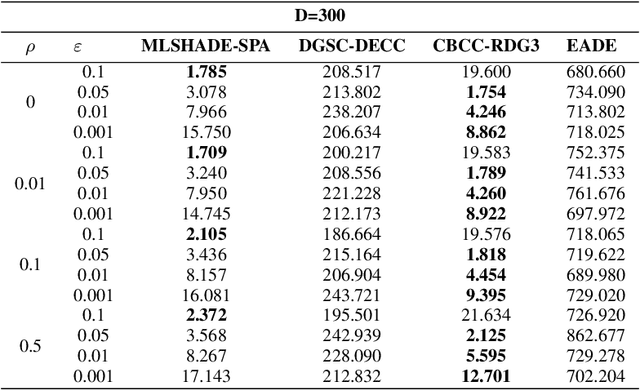Large Scale Global Optimization Algorithms for IoT Networks: A Comparative Study
Paper and Code
Feb 22, 2021



The advent of Internet of Things (IoT) has bring a new era in communication technology by expanding the current inter-networking services and enabling the machine-to-machine communication. IoT massive deployments will create the problem of optimal power allocation. The objective of the optimization problem is to obtain a feasible solution that minimizes the total power consumption of the WSN, when the error probability at the fusion center meets certain criteria. This work studies the optimization of a wireless sensor network (WNS) at higher dimensions by focusing to the power allocation of decentralized detection. More specifically, we apply and compare four algorithms designed to tackle Large scale global optimization (LGSO) problems. These are the memetic linear population size reduction and semi-parameter adaptation (MLSHADE-SPA), the contribution-based cooperative coevolution recursive differential grouping (CBCC-RDG3), the differential grouping with spectral clustering-differential evolution cooperative coevolution (DGSC-DECC), and the enhanced adaptive differential evolution (EADE). To the best of the authors knowledge, this is the first time that LGSO algorithms are applied to the optimal power allocation problem in IoT networks. We evaluate the algorithms performance in several different cases by applying them in cases with 300, 600 and 800 dimensions.
 Add to Chrome
Add to Chrome Add to Firefox
Add to Firefox Add to Edge
Add to Edge